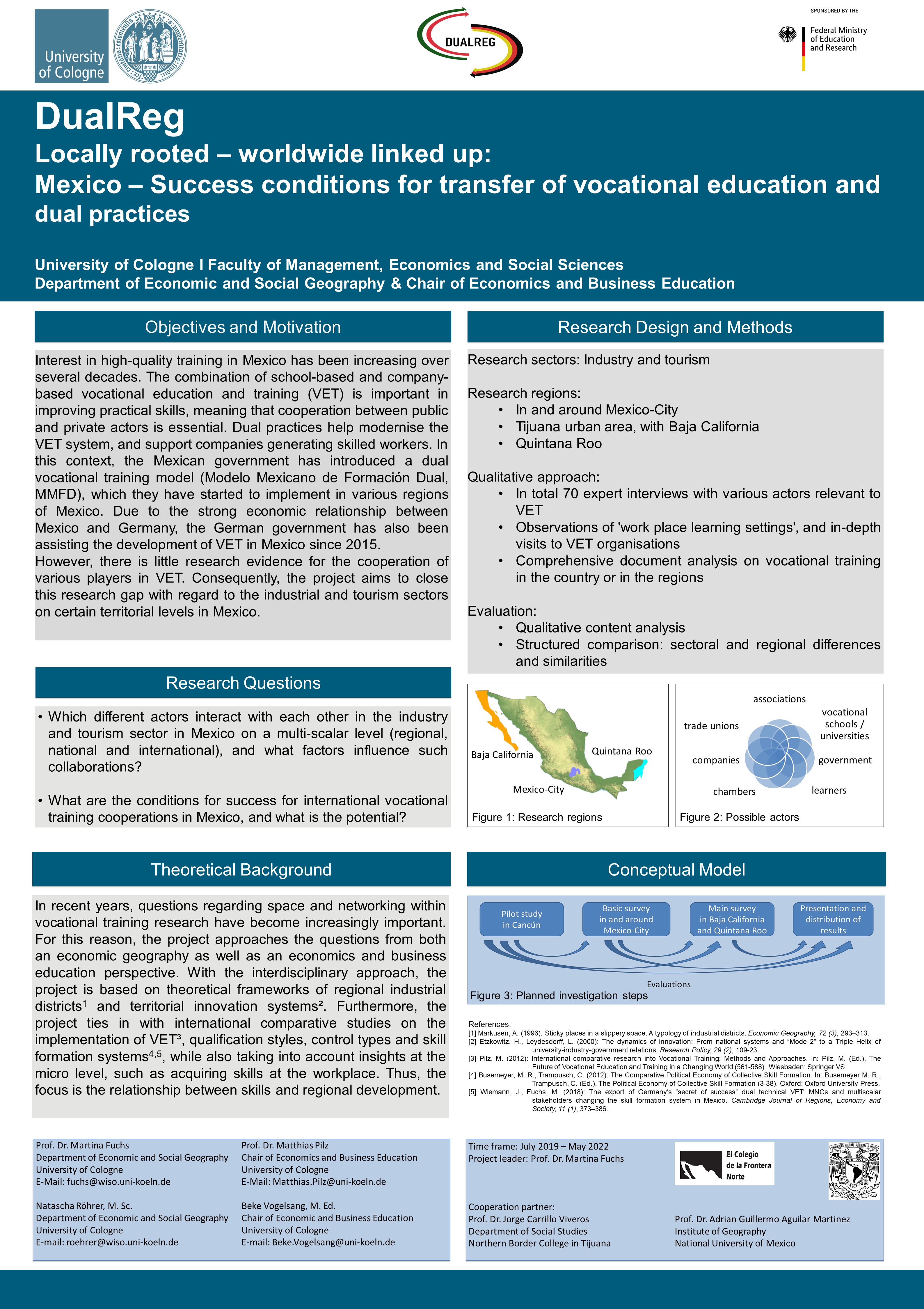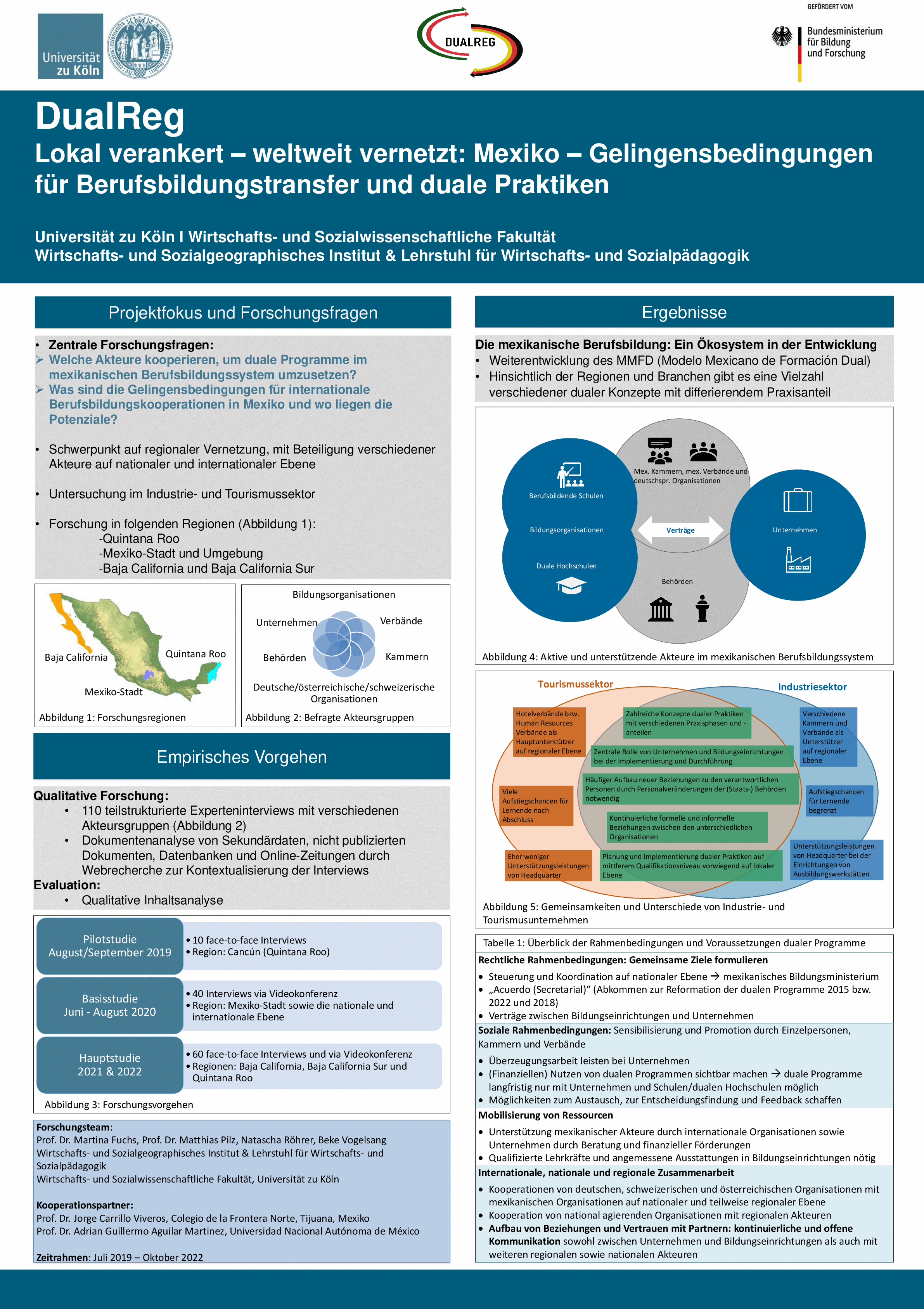Locally rooted – worldwide linked up: Mexico – Success conditions for transfer of vocational education and training and dual practices
For several decades, there has been an increasing interest in high-quality education in Mexico, which combines practice-relevant competencies through the integration of school-based and company-based training.
Dual VET practices should help with the modernization of the Mexican VET system. Moreover, VET can support subsidiaries of German companies with a focus on skilled workers needed for worldmarket production. In Mexico, especially in the Central Highlands, there is already a well-functioning interplay of different stakeholders, which has yet still to be developed or deepened in other regions, such as the manufacturing region in Northern Mexico, and in the major tourism destinations on the coast.
This project explores the conditions of success for international VET co-operation in Mexico. To specify the conditions of success, a regionally differentiating view is necessary, which, at the same time, interlinks the local, the national and the international level of cooperation in a multi-scalar manner. The project puts this into concrete terms for the manufacturing region in and around Mexico City (as a region experienced in VET co-operation), and compares it to the situation in the Tijuana urban area with the assembly industries, and to the touristic regions of Quintana Roo and Baja California.
The project explores conditions for sustainably successful VET cooperation, both for manufacturing and tourism industries. The project highlights best practice examples of VET cooperation as well as potential for new and deeper cooperation. The results shall provide sound recommendations for international vocational training activities with regard to further countries of the Global South, which also depend on (assembly) industries and the tourism industry.
Further information about the projects from the BMBF funding line can also be found on the webpage of the metaproject INVET. In addition, you will find an interview with Prof. Dr. Martina Fuchs, who gives a short overview of the project "DualReg".

